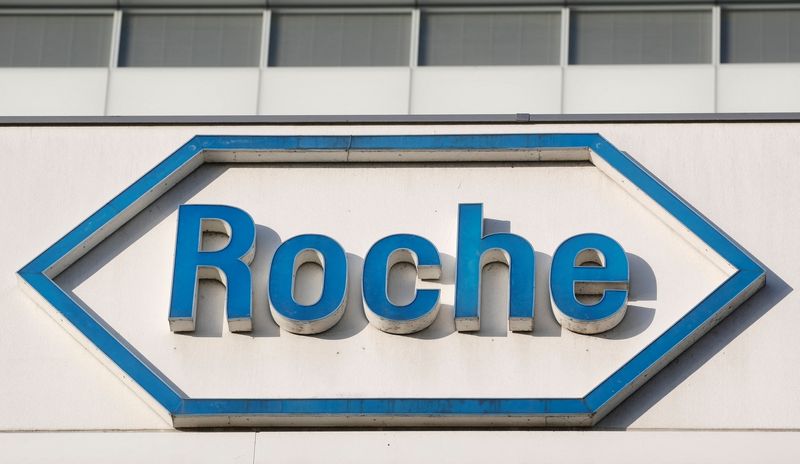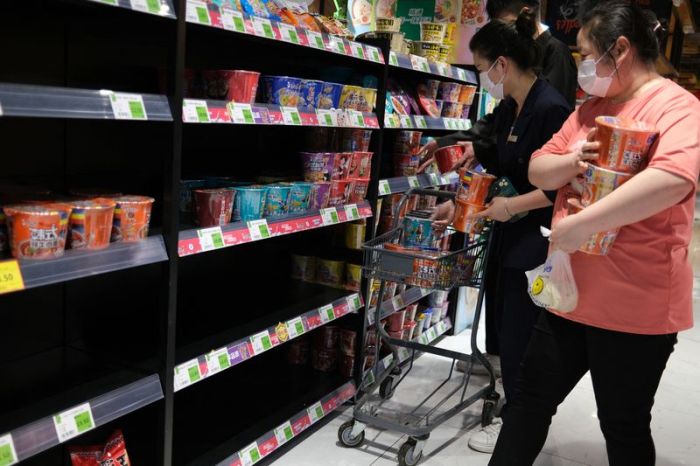(Reuters) -Roche’s first-quarter sales rose 10% on strong U.S. demand for rapid COVID-19 antigen tests and specialty drugs but the Swiss drugmaker reaffirmed that a drop in pandemic-related demand would put the brakes on growth.
Chief Executive Severin Schwan predicted much lower COVID related sales, mainly from tests and antibody treatment Ronapreve, from now on.
“There is of course a scenario where there is an upside in the winter season, depending on how COVID-19 will develop but that is not our planning scenario,” he said on a call with reporters on Monday.
Roche also reaffirmed that sales of COVID-19 medicines and diagnostics would decrease by about 2 billion Swiss francs this year to around 5 billion francs.
Roche’s quarterly sales rose to 16.44 billion Swiss francs ($17.17 billion), up from 14.93 billion Swiss francs in the year-earlier period. That was slightly above a market consensus of about 16 billion francs.
The diagnostics division accounted for most of the positive surprise, reporting sales growth of 24% to 5.3 billion francs on usage of its COVID-19 tests and cardiac tests.
Despite the sales boost, also driven by drugs including Ocrevus against multiple sclerosis as well as Hemlibra against haemophilia, Roche reiterated that it expected currency-adjusted 2022 sales to be flat or grow in the low-single-digit percentage range, below last year’s 9% gain.
Ocrevus revenue gained 18% to reach 1.45 billion francs and Hemlibra sales jumped 30% to 853 million francs, offsetting a decline in established off-patent cancer medicines Herceptin, Avastin and Rituxan due to cheaper rival products.
Roche’s shares were down 1.6% at 0915 GMT, a slightly worse performance than a 1.5% decline in the STOXX Europe 600 Health Care index as some drugs, including cancer immune-therapy Tecentriq, had slower-than-expected sales growth.
Roche also said an oral drug candidate giredestrant to fight a common type of breast cancer failed to slow disease progression in a mid-stage clinical trial in women that had gone through other treatments, but the broader trial programme would continue.
Rival Sanofi last month suffered a similar development setback in the same class of drugs, known as oral SERDs, designed to fight tumours that grow in response to oestrogen.
The new pills, including one by AstraZeneca, would be a more convenient option for patients than painful monthly shots that are now the standard.
($1 = 0.9577 Swiss francs)
(Reporting by Ludwig BurgerEditing by Miranda Murray and Jane Merriman)


























